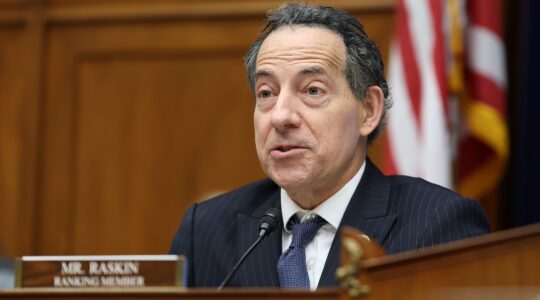CAMBRIDGE, Mass. (JTA) – Conservative rabbis gathered here for their annual convention failed to agree on a resolution that described the U.S. military effort in Iraq as a failure and called for a “timely draw down” of U.S. troops.Instead, the executive committee of the movement’s Rabbinical Assembly moved to take the talk online.”We really are a house divided,” said Rabbi Joel Meyers, the assembly’s executive vice president, who said he spoke out of order on several occasions in an effort to focus the discussion.The closed-door debate on May 2, described at times as fierce, mirrored the debate now roiling Washington. It came as broad public disillusionment with the war has not yielded a consensus on how to proceed.The debate also came the same week that Congress and the White House were tangling over President Bush’s veto of a bill tying war funding to a timetable for withdrawal.In the Jewish community there seemed to be more of a consensus against the war. Polls have consistently shown strong Jewish opposition; nearly two-thirds of respondents in a 2006 survey by the American Jewish Committee said the United States should not have invaded Iraq.A more recent aggregate of Gallup Polls found that 77 percent of Jews believed the war was a mistake.The Rabbinical Assembly’s proposed text said the U.S. military effort had “failed to yield success in stabilizing the country” and that the administration’s proposed troop surge “runs counter to the recommendations of responsible military analysts and the desires of the majority of the American people.”While the 12 other resolutions on the rabbis’ docket – including measures on immigration, reproductive freedom and the threat from Iran – passed with minimal discussion and only minor variations, the Iraq resolution generated a fierce and inconclusive debate.Motions were raised and defeated. According to participants, one rabbi exhorted his colleagues that while they waffled, people were dying.”People were very passionate at the microphone and saying all kinds of things in the debate,” Meyers said. “The hyperbole was getting a bit much.”The division among Conservative rabbis was in contrast with the positions taken by other non-Orthodox movements in March.The Reform movement passed a resolution opposing the troop surge and called for the “phased and expeditious withdrawal” of U.S. troops. The Reconstructionist Rabbinical Association called for a “rapid and responsible” troop withdrawal.Two weeks later Agudath Israel of America, representing the fervently Orthodox community, responded with a call for “deference” to President Bush in light of the “moral authority” he demonstrated in leading the battle against international terrorism. Perhaps no rabbi at the Conservative gathering had more at stake in the discussion than Rabbi Joel Newman, a commander in the U.S. Navy who has served in Iraq.Newman has organized Passover seders on aircraft carriers and in hostile enemy territory in Ramadi, which he calls the most dangerous spot in Iraq outside Baghdad. He has lined up with thousands of Marines in the dark of night awaiting transport to his next deployment. And he has accompanied troops in armored convoys through the deadly obstacle course that is Iraq.In an interview, Newman chose his words carefully, so as not to violate military regulations about public comment on the war.Newman said he shared the concern of his colleagues with the progress in Iraq, and he acknowledged that Iraq is a “horrific war.” But he worried that the rabbis’ proposed resolution would hurt the troops, who feel they are doing everything they are being asked.Nevertheless, Newman, who is based in San Diego but was in Iraq as recently as April, said it was important to have the discussion, even though he would abstain on any vote, in accordance with military regulations.”I think it’s important for people to speak their mind because that’s part of democracy,” Newman said. “I’m glad they’re talking about it. President Bush needs to know that Jewish leadership is having this discussion, on both sides.” That view was echoed by Melinda Zalma, who serves as a chaplain in the Navy Reserve in addition to her full-time position as rabbi at Congregation Beth Mordecai in Perth Amboy, N.J.”You can support the country, you can support the soldiers and wonder how successful we are being in the war,” Zalma said. “It’s very patriotic to have resolutions and to question what we’re doing.”In addition to giving a moving speech to his Conservative colleagues, Newman attempted to recruit some to his chaplaincy corps.At a table in the hotel lobby filled with colorful Navy literature, Newman sang the praises of a career that attracts only a fraction of American rabbis. He said eight expressed interest.Newman, 55, served a congregation in St. Paul, Minn., for six years before joining the Navy in 1981. And though he doesn’t carry a weapon like regular troops, he said he feels “tremendous pride in being one of them.”But he says being a military chaplain offers the chance to make an impact on people’s lives to a degree unattainable as a pulpit rabbi.”If you’re not there,” he said, “they have nothing.”

Help ensure Jewish news remains accessible to all. Your donation to the Jewish Telegraphic Agency powers the trusted journalism that has connected Jewish communities worldwide for more than 100 years. With your help, JTA can continue to deliver vital news and insights. Donate today.





